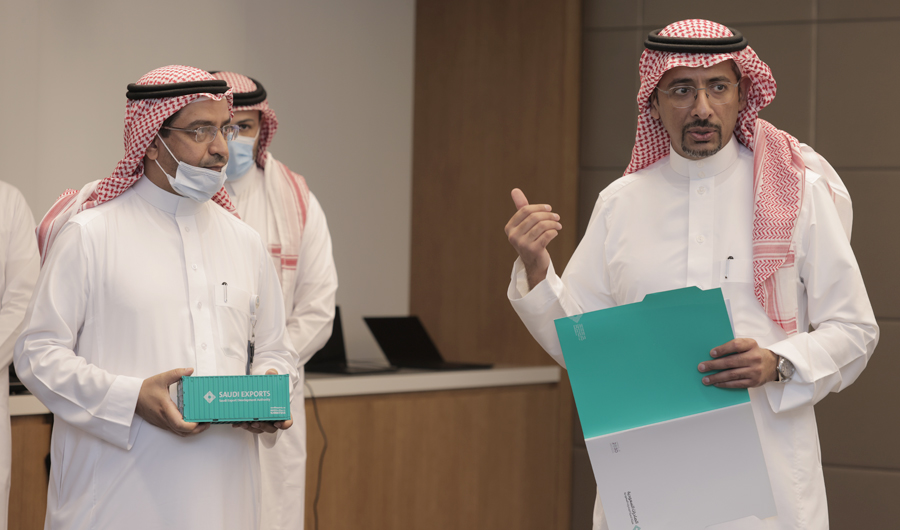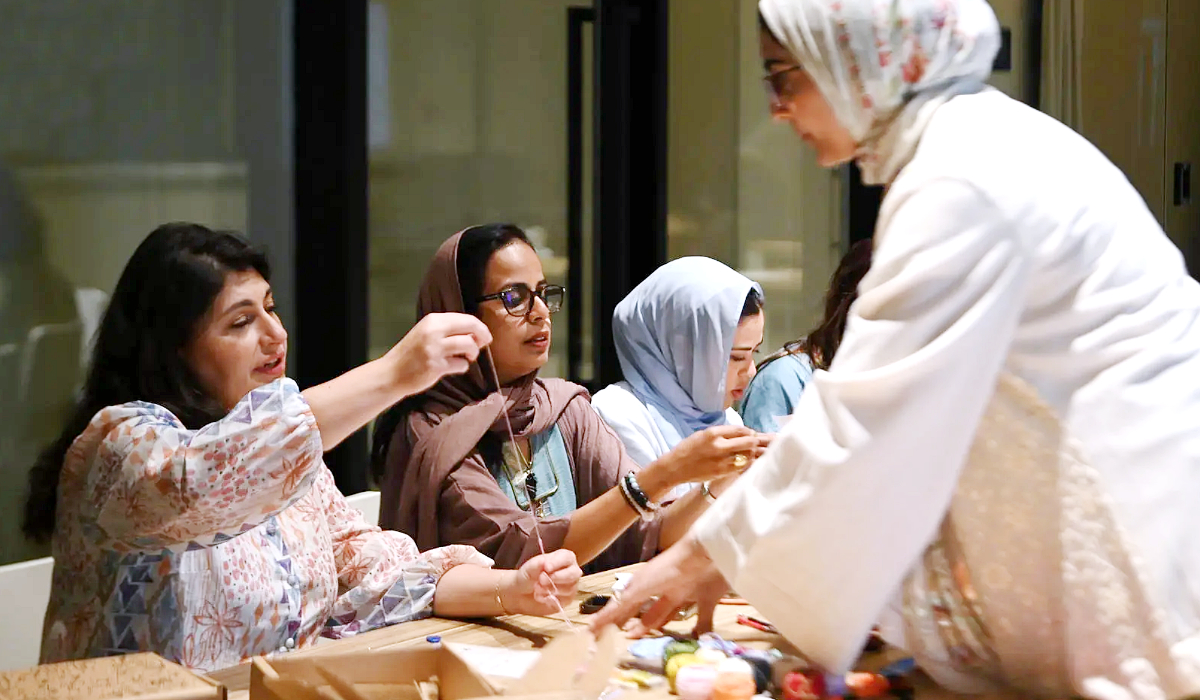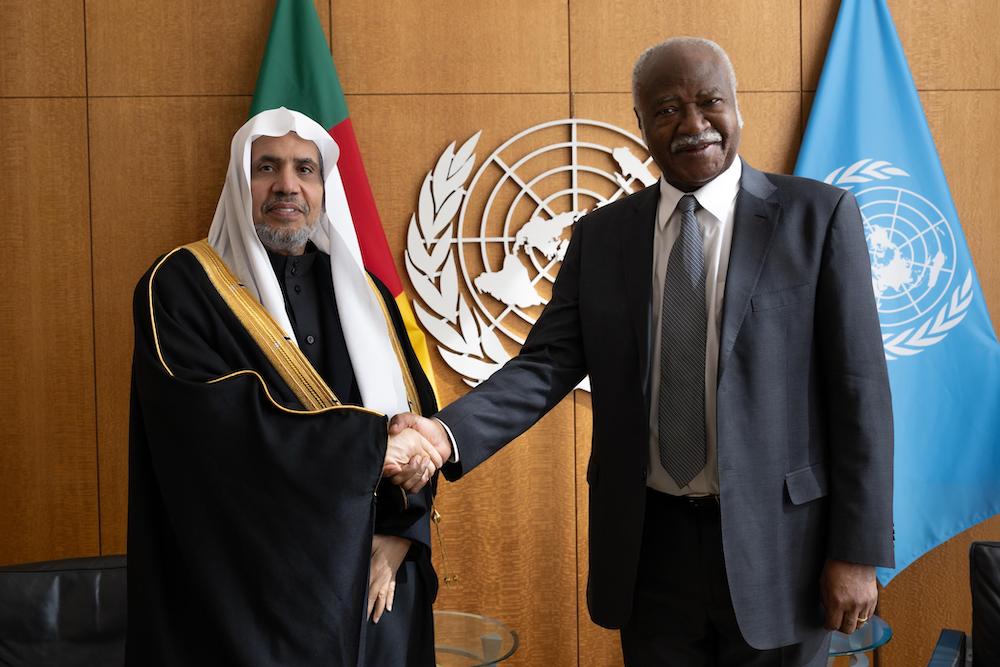JEDDAH: A design bootcamp to create the visual brand identity for the “Made in Saudi” program has been inaugurated by the Kingdom’s Minister of Industry and Mineral Resources Bandar bin Ibrahim Alkhorayef.
Nine Saudi designers are taking part in the bootcamp, after being selected by a panel from more than 400 applicants.
The minister, who is also chairman of the Saudi Export Development Authority (SAUDI EXPORTS), said there was a need for the program to reflect the Kingdom’s global and regional position and for it to “serve the Kingdom’s cultural identity and its substantial industrial capacities.”
He said the national industry capitalized on a heritage that spanned more than four decades and was widely acclaimed across all export markets.
The program was a national project for all Saudis and its identity should be designed by nationals in order to indicate that it was fully homegrown, the minister added.
“Launching the ‘Made in Saudi’ brand identity design camp aims at creating a unified brand identity for the national industry through local expertise, which will contribute to repositioning the Saudi product and advancing it toward new standards of reliability and excellence at all levels.”
He highlighted the role of the nation’s youth in promoting the distinctive position of the national industry domestically and globally, saying that the Kingdom firmly believed in the potential of its renewable resources, represented by its youth, and relied on them to take it to a new stage of innovation and creativity for a better future.

Nine Saudi designers, after being selected from more than 400 applicants, are taking part in the bootcamp. (Supplied)
“Our young talents are the real wealth, and their efforts and innovations will contribute to the fulfillment of our leadership’s goals in terms of driving the national economy, and enhancing the Kingdom’s position as a global industrial power that contributes to empowering global production capabilities for a more sustainable future.”
Saleh Al-Solami, secretary-general of SAUDI EXPORTS, said that substantial efforts and initiatives had been announced by the Saudi leadership to empower the national industry since the implementation of the Vision 2030 reform plan.
“At the forefront of these endeavors is the National Industrial Development and Logistics Program (NIDLP), in addition to several other initiatives that have been launched to raise local content elements in the national product, under the supervision of the Local Content and Government Procurement Authority (LCGPA).
“In this context, the LCGPA issued the price preference policy for local content and the mandatory list for national products aiming to increase the public sector’s demand for local products in all industries.”

He said that the most prominent results of such initiatives were their contribution to the uninterrupted growth of non-oil gross domestic product and the volume of non-oil exports, which reached about SR318 billion ($84.8 billion) at end 2019.
He said that, despite the decline in the volume of non-oil exports during the first and second quarters of this year as a direct result of the COVID-19 outbreak, this indicator had reclaimed its upward trend in June.
Non-oil exports, driven by the industry and mining sector, recorded their highest rise since Jan. 2020 to reach SR16.6 billion in June, a monthly increase of 32 percent compared to May 2020.
“This sends a strong message on the ability of industrial production to be the safety valve for the national economy and a buffer ready to absorb future shocks and challenges,” he said.
The director of marketing and corporate communications at SAUDI EXPORTS and the head of the “Made in Saudi” program, Mazen Al-Jasser, said the design bootcamp was welcomed by the country’s young creatives and had attracted more applicants than expected.
He hailed the creative capabilities and skills of Saudi youth who, he said, had made achievements in many fields.
“These talents will have the honor to participate in designing an innovative brand identity for the national industry, which will be the unified emblem of the national product and a trusted verification of the excellence of Saudi products worldwide,” he added.
Al-Jasser said that companies wishing to join the program must meet the conditions and standards specified for each sector.
Member companies would benefit from competitive advantages including the promotional benefits of using the unified brand, which would provide their goods and services with easier access into local, regional, and global markets.
SAUDI EXPORTS is set to launch the “Made in Saudi” program during the first quarter of 2021.
The nine Saudi designers have been divided into three teams to create three different designs.
The designs will be put forward for an online public vote, but the final identity design has to be endorsed by the minister of industry and mineral resources and also the minister of culture.
































